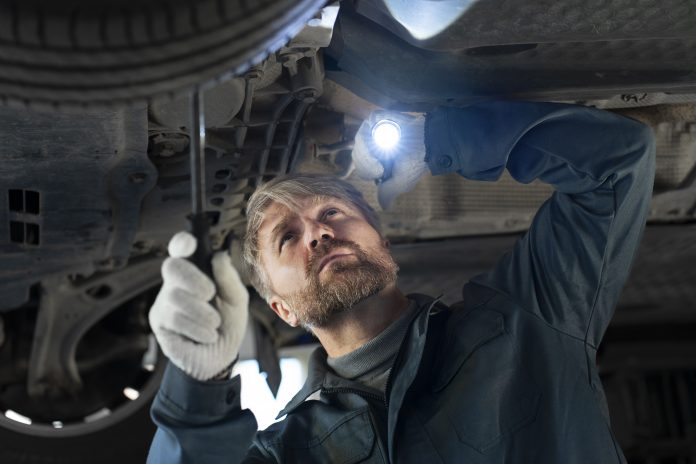The lack of qualified technicians is an ever-present issue for most dealerships. By next year, this shortfall is projected to increase to 642,000 open positions across the automotive industry. That’s a clarion call that wise dealer executives should be listening to.
Fortunately, dealers aren’t alone as automakers ramp up efforts to combat the situation. We’ll look at these and other measures, but first, let’s talk about how we got here.
Why a technician shortage?
It’s impossible to point a finger at a single cause of the technician shortage. Rather, multiple factors are to blame.
Uncertain professionalism
Mention “mechanic” to most people, and you’ll get a description of an unkempt “grease monkey” with dirty fingernails and a surly attitude. And while this stereotype is a thing of the past in many service departments, it’s a perception that lives on.
Societal distractions
Today’s career-minded youth are bombarded with messages touting the “easy money” from hosting a YouTube or TikTok channel. And while few succeed in following this route, the notion of working without having to roll up one’s sleeves gets reinforced.
Competing career tracks
Needless to say, high schoolers are conditioned to believe that college is the only way to success. In many schools, a vocational or technical skill path is treated like a ticket to second-class status.
Preparing for the future
Wisely, many automakers are leading the charge to overcome the technician shortage. Of course, there’s self-interest involved, but having the big players spearhead recruiting efforts is a win for everyone.
Last year, the Blue Oval launched the Save Our Students (SOS) program to supplement what the company already does with high schools. The idea here further targets students by creating opportunities to partner with local Ford and Lincoln dealers. It also establishes a clear path to a career as an automotive technician.
The approach removes many obstacles for budding technicians. Contacts already exist with hiring dealers, students receive access to advanced training opportunities, and hired participants get tools at a discount. At the same time, dealers get easy access to recruits who are further along in their training.
BMW takes a rigorous approach with its Service Technician Education Program (STEP), which targets post-automotive school graduates. These students receive a focused six-month training period that combines classroom instruction with hands-on experience at a dealership. The company also offers its Fastrack program in partnership with UTI and LTI for accelerated learning.
The move to a more professional automotive service workforce started as the mechanic title gave way to the technician moniker. 81% of those who work on cars for a living prefer this term over mechanic, according to a WrenchWay survey. But, as dealers have learned the hard way, there’s more to hiring and keeping technicians than wordplay.
Strategies to ease hiring pressure include several approaches.
Changing the mindset
While not an overnight remedy, changing how high schools, guidance counselors, and even parents think about automotive technician careers is the starting point for solving recruitment challenges. Efforts can be as simple as reminding interested parties that grease monkeys are extinct and today’s technicians need as much brain power as hands-on skills. There’s also a case to be made that the extreme cost of a college education doesn’t guarantee a high-paying job in the future.
Promoting technology
Technology is all-encompassing, with a considerable number of young job seekers looking for a career in information technology. But, many of those soon to enter the workforce don’t realize that modern cars are essentially computers. Automakers, dealers, and trade schools miss the opportunity to promote this. It’s not that far-fetched to envision today’s technicians becoming tomorrow’s service department engineers.
Focusing on culture
Work environment and company culture can influence job seekers. The Gen-Z crowd is particularly focused on moral and ethical standards, especially in the workplace. Employers that offer a welcoming and engaging atmosphere will reap the rewards.
Updating the curriculum
It restates the obvious that automotive technology is moving at lightning-fast speed, but trade schools often fail to keep up with the pace. There’s nothing more discouraging for rookie technicians than realizing they’re behind the times from day one on the job. Ford’s SOS program is one way to address this technician shortage, but more automakers and dealers must get in on the effort.



